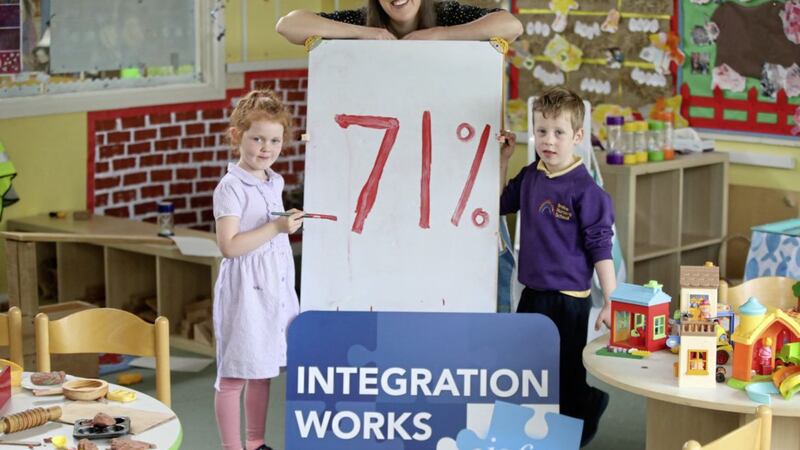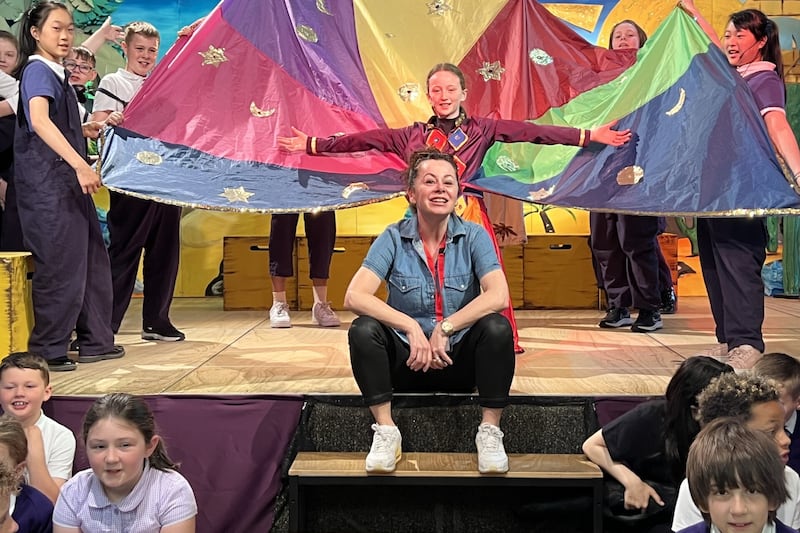SUPPORT for integrated education is steadily growing with almost three-quarters of people believing schoolchildren of all faiths and none should be taught together, a new survey has found.
Research commissioned by the Integrated Education Fund (IEF) shows that 71 per cent of those questioned support a single education sector, an increase 5 per cent on the last corresponding survey in 2013.
There are currently 68 formally integrated schools and colleges in Northern Ireland, educating around 25,000 children, but Stormont has no plan for the sector and its growth is down to campaigners and parents.
The latests survey, collated by Belfast-based independent polling company LucidTalk, comes as the Stormont executive prepares to launch an independent review of the regional education system, as outlined in the New Decade, New Approach agreement.
The deal that saw devolution restored in January last year described the regional education system in its current form as "unsustainable" and pledged to examine the prospects of moving to a single education system.
The IEF survey of 2,000 people reveals that a clear majority, regardless of their political affiliation, are in favour of an integrated education system.
The attitudinal report found that 59 per cent of DUP voters and 72 per cent of Sinn Féin voters believe children should be educated together.
It also concluded that almost four-fifths – 79 per cent – of those questioned agree that all schools, regardless of management type, should aim to have a religious and cultural mix of its pupils, teachers and governors.
Respondents to the survey attributed slow growth in the expansion of the integrated sector to politicians and the influence of the churches, with 64 per cent of those surveyed ranking the latter as 'highly' influential.
The report's publication coincides with the IEF's continuing 'Integrate My School' campaign, which encourages existing schools to explore formal integration.
Jill Caskey of IEF said the survey's findings highlighted widespread demand for integrated education and the need for the Stormont executive to "actively promote a fully integrated education system for the benefit of our entire society".
“Although the level of integrated education has continued to grow since the Good Friday Agreement, it is nowhere near the rate it needs to be in order to reflect the demand from parents for more integration – there is no government plan for developing more integrated schooling with growth solely dependent on parents, schools and campaigners," she said.
"We are going into an era in which Northern Ireland needs an education system fit for the 21st century which is fully inclusive – we need to see a dedicated governmental plan to accommodate the demands of our parents and children."
Alliance MLA Kellie Armstrong said the survey's findings showed how some politicians are out of step with the public.
“Integrated education here has stalled because there are not enough places for families to send their children to integrated schools – the most recent Good Relations report confirmed 21 per cent of children didn't get their first preference of an integrated school," she said.
"Parties have to stop speaking out of both sides of their mouths, remove the status quo which places division at the heart of education and instead help deliver a system which celebrates who and what we are, no matter our culture, religion, socio-economic background and abilities."








